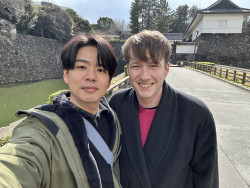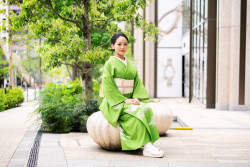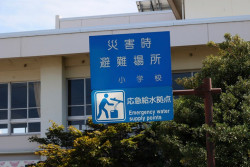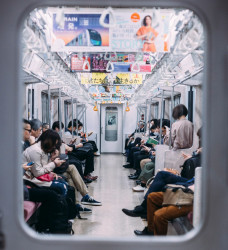
Originally published on metropolis.co.jp on October 2012

Amid all the physical destruction in Tohoku, it might be hard to imagine that starting new photo albums would be high on the list of priorities for locals. But a group of professional photographers and other volunteers called Photohoku has found that, with a few photos to get them started, many survivors are eager to renew the documentation of their lives.
Co-founders Brian Scott Peterson and Yuko Yoshikawa started the project in September last year to help those who lost all their photos in the tsunami. “As photographers, we wanted to take photos, and a way to help that would have a direct impact [on] the lives of survivors,” they explain on their website. One way they saw that could help, they write, was “to visit some of the most devastated areas of Tohoku with a box of instant film and a trunk full of empty photo albums… and attempt to help people start over.”
At first, they struggled with how best to approach people and explain what they wanted to do, but they soon found that pitching in with clean-up efforts and just taking the time to listen to people naturally led to photo-taking, something that the subjects often found deeply moving.
Yoshikawa describes meeting an elderly woman on one of their earliest trips. She’d lost her daughter-in-law in the tsunami and was left as the sole guardian for her two-year-old granddaughter, a responsibility she didn’t know how to manage. When Peterson took her picture, something he said made her laugh, and when the woman saw the photo, she began crying. “She said, ‘I never imagined I would smile again.’ Even if it was only one moment, she smiled and she could see her smile and that meant a lot to her,” explains Yoshikawa.
Others keenly felt the need to record their struggles. On a visit to a temporary housing area, the photographers were at first trying to frame the shots so that the bleak, utilitarian buildings were not visible, but the residents insisted they be included. Says Yoshikawa, “They said, ‘please take a picture in front of the temporary house because maybe we’re leaving soon and we don’t want to forget what we have overcome. And my kids are still young, so maybe they won’t remember, but I want to tell what we experienced.’”
Sometimes just the unfamiliar gear is enough to attract interest and break the ice. Compared with the small, high-tech digital cameras you usually see, the size and extendable accordion-like bellows of Peterson’s instant film camera look like something out of a steampunk movie. And the peeling back of the covering strip to reveal a finished image is far more interesting—and participatory—than a Polaroid shake.
Peterson says the film, all of which is donated by Fujifilm, is integral to the project, not only because it allows them to immediately hand over an original, one-of-a-kind photo, but because it produces the kind of high-quality prints people rarely get anymore.
“This is a photographer’s dream to be using this amazing, tactile, smelly, nuanced thing,” he says. “It’s a real piece of art. The act of just making it only to give it away… It’s really romantic for photographers.”
The portraits themselves are just the beginning of the project, though. Photohoku also provides photo albums donated by Nakabayashi and used digital cameras. They revisit previous recipients with a portable photo printer and also offer scrapbooking workshops.
In the past year, Yoshikawa and Peterson have organized and taken part in 12 Photohoku trips all across the region, taking thousands of pictures and giving away hundreds of albums along the way. And they have no plans to stop now. They intend to keep visiting Tohoku at least as long as people are still in temporary housing.
“We’d like to continue this project forever,” says Yoshikawa. Peterson chimes in that even if their sponsorship runs out, they’ll keep on going back because there are people they’ll want to see. “We’ve made life-long friends,” he explains, and there’s always a shichi-go-san, a graduation, a wedding or a birth just around the corner.
For more information, see http://photohoku.org







